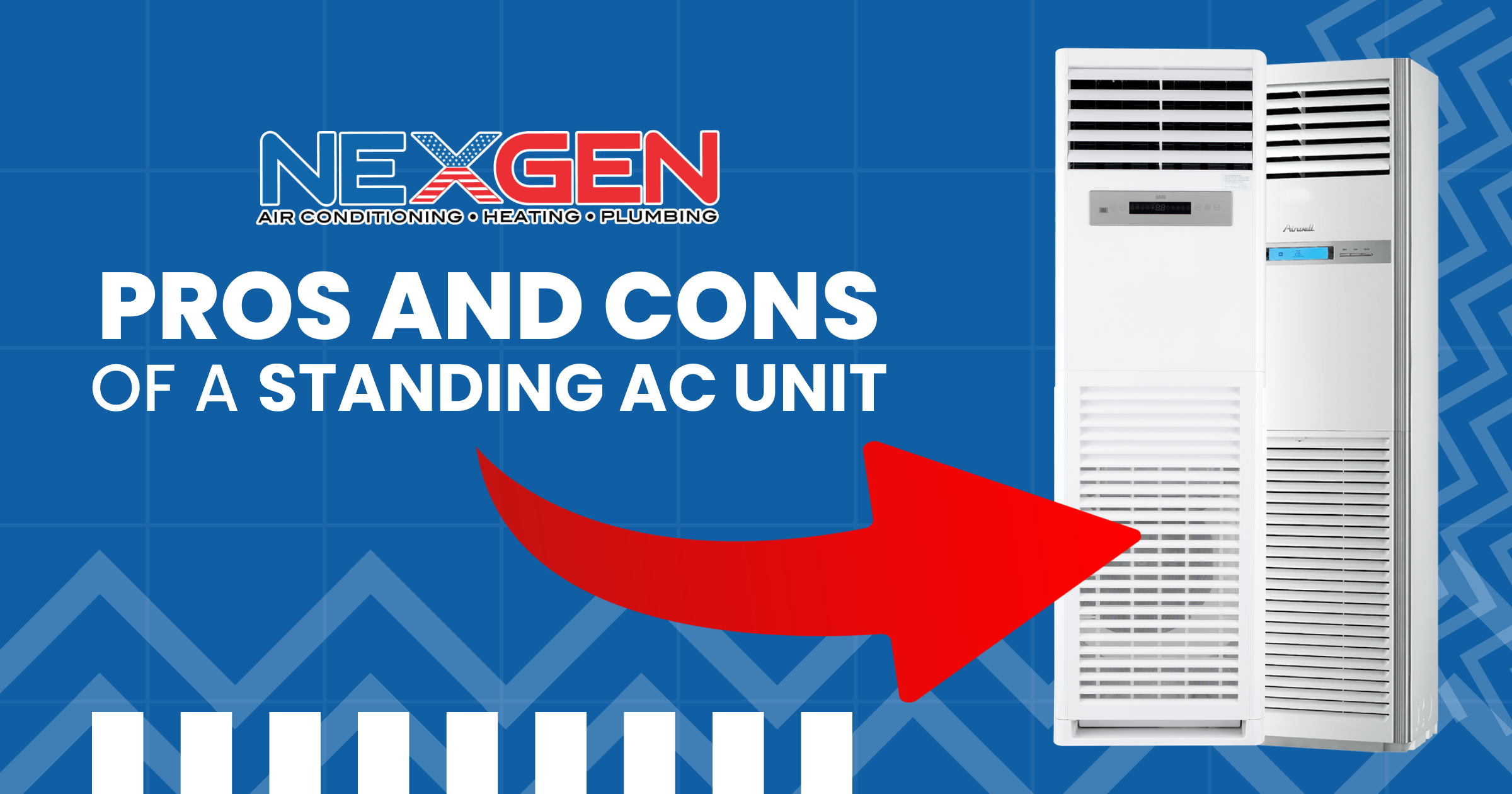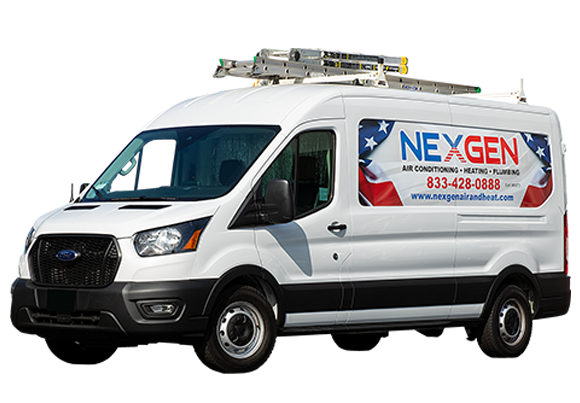Pros and Cons of a Standing AC Unit

Without a large central AC system, parts of your home may be too hot in summer. Nonetheless, adequate cooling for every room is still possible. A standing AC unit is a convenient option. We will explain the pros and cons of a portable air conditioner, which works similarly to a central air conditioner.
How Does a Portable Air Conditioner Work?
A standing air conditioner can be useful whether you don’t have central AC or it does not serve a particular room. The unit operates on a smaller scale. It draws air from outside through a window, cycles it through a compressor, blows cool air inside, and exhausts hot air outside. All the unit’s working components are contained in a single housing, including coiled tubes that circulate refrigerant. A pipe or air duct allows for an exchange between outdoor and indoor air.
Pros of a Standing AC Unit
The benefits of using a portable AC include:
- Mobility: The unit can be moved from room to room as needed. For example, you can place it in your living room or home office during the day and move it to the bedroom later. Some standing AC units have casters on the bottom, so can be wheeled to a new location. You can even pack one in a car and use it when traveling.
- Easy to Install: The AC unit is ready to use as soon as you bring it home. Its instructions should explain how to connect and assemble the window hose. Vent hoses are usually 5 feet long or less, so units must be installed close to windows. A window bracket, vent hose adapters, and one or two hoses are typically included.
- Suited for Small Spaces: If the particular space you want to cool is small, an oversized AC won’t provide many benefits. Standalone portable ACs are best for 100- to 300-square-foot rooms where spot-cooling is most effective.
- Preserves Access to Windows: The intake/exhaust hose requires a small space. But access to most of the window is preserved. A standing AC unit also does not block natural light, reducing the need for artificial lighting.
- Convenience: Apartment buildings and homeowners associations don’t always allow window air conditioners. A standing unit can be used instead. Many standing models also provide heat. Connecting a portable unit to a programmable thermostat adds even more convenience. Battery-powered units are an alternative when there’s limited access to electrical power.
- Low Cost: Portable air conditioners cost less than central AC units, especially considering the cost of equipment and labor. A portable unit’s compact size and small capacity means it’s also affordable to operate. It can help manage your utility bills.
- Can Also Control Humidity: High humidity in your home can cause wood furnishings to rot, walls to be damaged, and mold and bacteria to spread. A standing AC unit often has a built-in dehumidification function that may work even when cooling isn’t needed.
Cons of a Standing AC Unit
Despite their many benefits, stand-alone AC units have disadvantages worth considering. These can include:
- Not Always Efficient: Compared to window ACs, portable devices require more British Thermal Units (BTUs) to cool the same square footage. Waste heat may be blown indoors, so the unit must handle that too, requiring more electricity.
- Noise Level: All the parts are working within the portable unit while you’re eating or trying to watch TV. You can lower the fan speed or place the unit in a distant corner to reduce the noise.
- Moving It May Be a Hassle: Connecting and setting up the vent line can take time. While the unit’s mobility is a pro, having to redo the installation and get it right may not feel like a great investment in time.
- Difficult to Repair: If a standing AC unit breaks, its design makes it difficult to repair. All the components are tightly sealed in a compact device. Damaged or malfunctioning portable ACs are usually replaced.
Contact NexGen Today
NexGen provides a wide range of high-quality HVAC equipment. We’ll help you determine the best system for your Southern California home or business. Traditional, electric, rooftop, and ductless systems are available and we specialize in the latest air purification equipment and thermostats. Our licensed contractors can help install, repair, and maintain your heating and cooling system. For assistance from licensed, insured technicians, book your visit online or call (833) 729-9735.





















